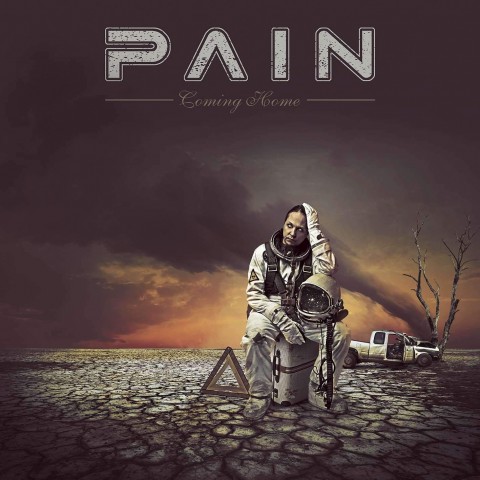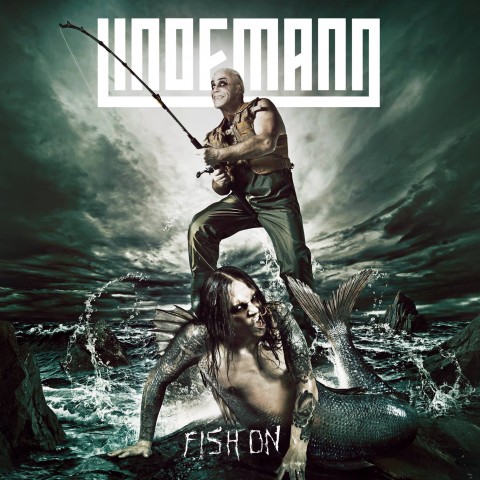Peter Tägtgren on Pain, Lindemann, Hypocrisy, and work at studio
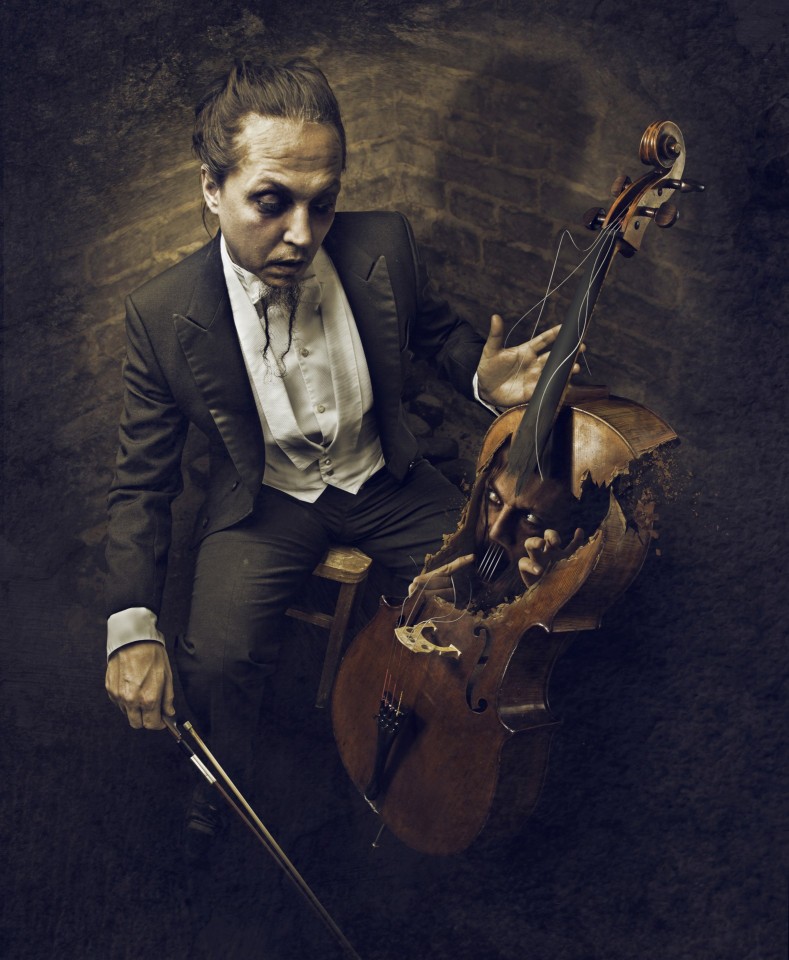
The founder and co-founder of Pain, Hypocrisy, and Lindemann, the owner of the successful recording studio, the member of the several music projects, Peter Tägtgren, has gained a reputation of a workaholic in the metal community. Despite the knownness of his bands, the well-known Swedish producer and multi-instrumentalist perceives music as a hobby, most of the time devoting to The Abyss recording studio, in which portfolio are many classic albums, including Dimmu Borgir’s "Enthrone Darkness Triumphant", Immortal’s "All Shall Fall", Enslaved’s "Mardraum: Beyond the Within", Rotting Christ’s "Khronos", Dark Funeral’s "Diabolis Interium", Children of Bodom’s "Follow the Reaper" and many other releases.
Being on tour in support of the new Pain’s album "Coming Home", Tägtgren kindly agreed to meet with Noizr ZIne’s journalists and answer our questions. Below is the transcript of our conversation with the musician, which took place just before the band’s show in Kyiv, Ukraine.
Almost four years have passed since your last visit to Kyiv, do you have any memories related to Ukraine, its capital, and your fans?
Peter Tägtgren: A lot of memories, a lot of good memories! It’s always great to come here. We always did it in the past, we did Kyiv, Moscow, and Saint Petersburg. We did this triangle, also with Hypocrisy as well. And it was always the best. I mean, it’s always been great: good food, nice people, and a great crowd every time, so I really hope for the same tonight.
In Kyiv, you are to present Pain’s new record "Coming Home". In some interviews, you stressed that new songs will sound great at the live shows. What can you tell us about the tour in support of the first LP in five years?
Peter Tägtgren: Oh, it’s great, this is the second part of the European tour that we did. There were some problems and timing for everybody involved, you know, there are a lot of people on the tour. Unfortunately, there was such a big gap in between the last part I of the tour and the part II, I knew that we’re going to do the part II but we had to wait so long because a lot of people had to do other things in the band and also in the crew that we need, so this was the earliest we can do it. I remember last time when we released the last album, we actually started in Ukraine and Russia. So now we do the opposite a little bit.
Are your hopes about "Coming Home" justified?
Peter Tägtgren: You know, you always want more and more and more [smiles]. There were good responses, good reviews and stuff like that.
This album is a really mixed album. The same a little bit with "Nothing Remains the Same" — there are a lot of slow songs, but also a lot of fast songs, and a lot of hit songs — it’s a good mix. While the last album was more like in one kind of vein, this one goes up and down in different ways. It’s good to experiment. Pain has no place where it should be, it can go this way or that way. For me, the whole idea with Pain from the beginning was really to experiment in the studio and learning about using electronic instruments, samples, and stuff like that and I try to keep on doing it.
You said that you have been influenced a lot by David Bowie for the past 4 years. How did it affect the new Pain’s album?
Peter Tägtgren: Not too much. In my world, it’s impossible to even touch his stuff [smiles]. Because I’m not too much in his later 70’s and up till today, to be honest, I’m only like "Hunky Dory", "Ziggy Stardust", "Aladdin Sane", and "Diamond Dogs" — these are my favorite ones. Of course, the last album ["Blackstar" — Noizr] and "The Next Day". Everything in between — I haven’t got into so much. But I don’t know, maybe "Starseed" can remind a little bit of his stuff or "Coming Home" a little bit, where I took out an acoustic guitar for the first time in my life on an album.
If we talk about space theme, was it Bowie’s music that inspired you to work with it?
Peter Tägtgren: No, it’s inspired by me. "Starseed" is about where do we go when we die, are we start seeds that are kind of lost in this whole huge thing that could be a three-dimensional dream that is not even real. If you start thinking about it, you go crazy.
Science fiction, aliens... What were your sources of inspiration for the tracks?
Peter Tägtgren: "Black Knight Satellite" is about... You know, Tesla and a lot of people said that there is something up there sending signals down. It was before they can go up in space and see it but that couldn't really touch it. After that everything got classified.
And of course, in "Shut Your Mouth" we have an alien, but other than that there are no space themes in Pain.
All drums on Pain's new album are performed by your 18-year-old son Sebastian. Did you work on these drum parts alone or together with your son?
Peter Tägtgren: He was actually 17 at that time [laughs].
We worked together. He put his touch on it, he wanted to do a lot more stuff but I told him to keep it professional and think AC/DC, straight to the point.
As far as we know, he has already worked on Hypocrisy’s track "Soldier of Fortune", hasn’t he?
Peter Tägtgren: He and I wrote this song together in 2013. And now, since January, we are sitting in the studio, writing music, and we have like 20 songs or something like that. We don’t know what it is for. It’s not for Hypocrisy, it’s not for Pain, it’s for something else. We don’t know yet, we just writing because we really have a good time writing.
He was Pain’s touring musician in 2016. It should be great to share the stage with your own son.
Peter Tägtgren: Yes, it’s great. He was playing drums on the first part of this tour because David [Pain’s drummer David Wallin — Noizr] couldn’t be here. So he filled in playing drums and did an incredible job.
Will Sebastian also take part in today’s show?
Peter Tägtgren: No, David is back to work. He is in Pain for 14 years, so he is the main drummer. Sebastian just helped out because David had to be home at that point.
By the way, the last release of Hypocrisy came out in 2013. Are you planning to return to this project in the nearest future?
Peter Tägtgren: Yeah, but I don’t know when. We just have to find the right inspiration and moment. It’s not about making money, it's about getting the right inspiration.
You’ve told once that these projects are like hobby for you.
Peter Tägtgren: Everything is a hobby for me, that’s music, that’s what I love to do. And if you treated it as a job where you have to have an income then music starts changing a little bit. So it’s better to keep it as a hobby when you write music because otherwise you start jumping into the wrong places where you shouldn’t be.
You have admitted that you hate your voice and that management pushed you to try and sing on the new Pain’s record...
Peter Tägtgren: Yeah, that was Sanna [Sanna Bark — Noizr] my manager, she forced me to sing [smiles].
Were there any other options? Could Pain have a different vocalist? Maybe, on the next records?
Peter Tägtgren: Well, look at Lindemann. What happened. That’s Pain with Till’s singing.
In addition to the musical career, you are also a successful music producer — therefore the next question: so-called "sound engineer's hearing" — is it something that a person has from birth or it can be developed somehow? If the second option, so how to do it?
Peter Tägtgren: In my world, there was no Internet, so you could go and look how other people were doing it, and I lived in a very small town I had to learn by doing. After a while you know a little bit what frequencies you have to take off from the snare, for example, so it doesn’t sound so bad or guitar and stuff like that. But all these things have different characters, so you can't really say "do this" or "do that" on every instrument because there are so many characters in different guitar sounds, different amplifiers, different speakers, different microphones, so it’s just something you have to learn. A lot of experience helps a lot. And, of course, if you have a good hearing it helps even better.
So, there is no strict rule and you don’t have to be a professional musician with a perfect hearing to work on music as a sound engineer, do you?
Peter Tägtgren: No, but you have to have some kind of feeling of music, of course. It’s like telling a blind guy to drive a car. If he can see a little bit, he can drive a little bit, the same thing with a hearing. If you hear music a little bit, then you can’t probably fix something.
Some professionals say that a beginner producer should have reference works and honestly compare them with his own mixes. And what about you? What kind of works could you call a reference in terms of production and which you would advise comparing for beginners?
Peter Tägtgren: Oh, god, I don’t know! [smiles] Everything in music it’s all about the matter of your own taste, it’s nothing like, "this is good, this is bad". Everybody likes different things.
But what about you? We know that you like David Bowie...
Peter Tägtgren: I would say David Bowie is a good thing if you want to write music when it comes to production you have to think about something else. I think, if you are not into death metal or something like that, but if you are into metal, I would say maybe Rammstein’s "Mutter" is very good, because it has a lot of different elements, it has orchestra parts, heavy guitars, good drum sound — that could be a good reference.
What do you think, is it possible to talk about some trends in production? For example, nowadays some producers and musicians return to vintage equipment...
Peter Tägtgren: Yeah, that is what I do. I put all the microphones into the vintage stuff and then into the computer. The computer is only a recorder and nothing else. You have to warm up the sound before it goes into the computer because otherwise it gets very sterilized. With Pain, it works fine because it supposed to be a little bit industrial kinda cold sound but if you do something else — use a lot of old compressors, old microphones and stuff like that help you to get a warmer sound.
And why are you into the old stuff?
Peter Tägtgren: I think it comes with the job. It’s like collecting cars. In the beginning, you may be collecting the new fast cars and then you start going to the 60’s cars, then 50’s cars, and 40’s cars.
Could you say that old is gold?
Peter Tägtgren: A lot of good stuff was made for studio in the old days. Because they didn’t have enough of equipment to make the sound right, so they had to make microphones right, so you didn’t have to tweak too much of the sound, for example. So super expensive old the Neumann stuff and Telefunken and shit like that. Today you can also get microphones for the 10% of the price of the nice ones but it’s also a good status to have them in your studio in your repertoire or whatever you wanna call it.
While working on a sound at the professional The Abyss studio — how do you make music on all devices (from expensive audio speakers to cheap headphones) sound great?
Peter Tägtgren: Sometimes when I mix an album I just turn on my iPhone and play it on the iPhone, not with headphones, but just through here [points to the phone’s speaker — Noizr] and check if snares loud enough, if vocals loud enough, and then you go back to the bigger speakers with the stereo things. Just take it to the car, listening, if you have a shitty car stereo if it sounds good there. You compare it in the kitchen, you maybe have a small boombox or something like that, you compare everywhere. So you try to do something in the middle of all these stereos that you have.
Do you do such thing with every album on which you’re working?
Peter Tägtgren: When I do other bands it may be some time pressure so you do not have much time to analyze it but, at least, I listen to it at home, in my car, and in the studio. I have like 4 different pairs of studio speakers. All speakers sound different, there is no right, there is no wrong.
We would like to talk a little bit about Lindemann. Is the project "on hold" today?
Peter Tägtgren: They [Rammstein] are working on a new album. So Till and I are doing some crazy stuff on the side and just wait until it’s time again, you know. But we’re always in contact, try to collect our crazy ideas together, and put it in a bag for later.
In one of the interviews you mentioned that you just didn't come up with a name for the project, so it was called "Lindemann". How important for you is that the project has no common name and wasn’t named after you?
Peter Tägtgren: In the beginning, it was a big fight about the whole thing, not between Till and me but between my management and his management. But in the end we said, "Fuck it", music is good and without my music, he can’t do anything, so it fifty-fifty thing and no big deal.
Also, you have called Lindemann’s tracks "songs for parties". Many listeners, on the contrary, considered in your songs the profound meaning and criticism of drugs, careless sex life, abortion, prostitution, and pimping through the irony. Have you had an idea like that?
Peter Tägtgren: When you wanna make something great, you create a character that you sing about and how he is. It doesn’t mean that Till is like that in private but you wanna give the listener something interesting to listen to and blow it up bigger than what it is in ideas. Because the songs have so many meanings. Some people think this song is about this, other people think it’s about that, and then Till goes like, "No, actually it’s about that". There are so many different meanings about every song, everybody interprets it in different ways, so it’s good, it means that it’s simple lyrics but still it can have many different meanings.
Is it easy for you to work with Till?
Peter Tägtgren: Yeah, we feed off each other and just spit out songs, that’s why it goes so fast.
Do you spend some time together besides your work?
Peter Tägtgren: Nowadays it’s always been about creating the first Lindemann album on which we spent much time. Before that, we spent time when I came to them when they were in Stockholm playing or he came to me when in I was in Berlin playing. We always on the phone together or texting or something like that.
Ideas of Lindemann’s artworks, as far as we know, belonged to Till...
Peter Tägtgren: Not all of them but he was the one who had to take care of it while I was taking care of the music, and the mixing, and the production.
Tell us about the design and similar works for the new Pain's album. They were created by the same artist Stefan Heilemann, weren’t they?
Peter Tägtgren: I’ve started to work with this guy in 2011 on "You Only Live Twice". And while we were doing this album ["Skills in Pills" — Noizr], we were thinking about how we should look like, so we had four different photographers and artists over the weekend and they took all different pictures with different clothes and stuff like that. And then we said, "Ok, we go for this guy that I had before". Then I came up with "Fish on" that I should be a mermaid and Till should be [a fishman], and the guy created it and after that, we said, "Ok, let’s try to do one picture for every song". Then Till started working together with Heile and suddenly the whole thing just started going crazy while I was still concentrated on getting the production done.
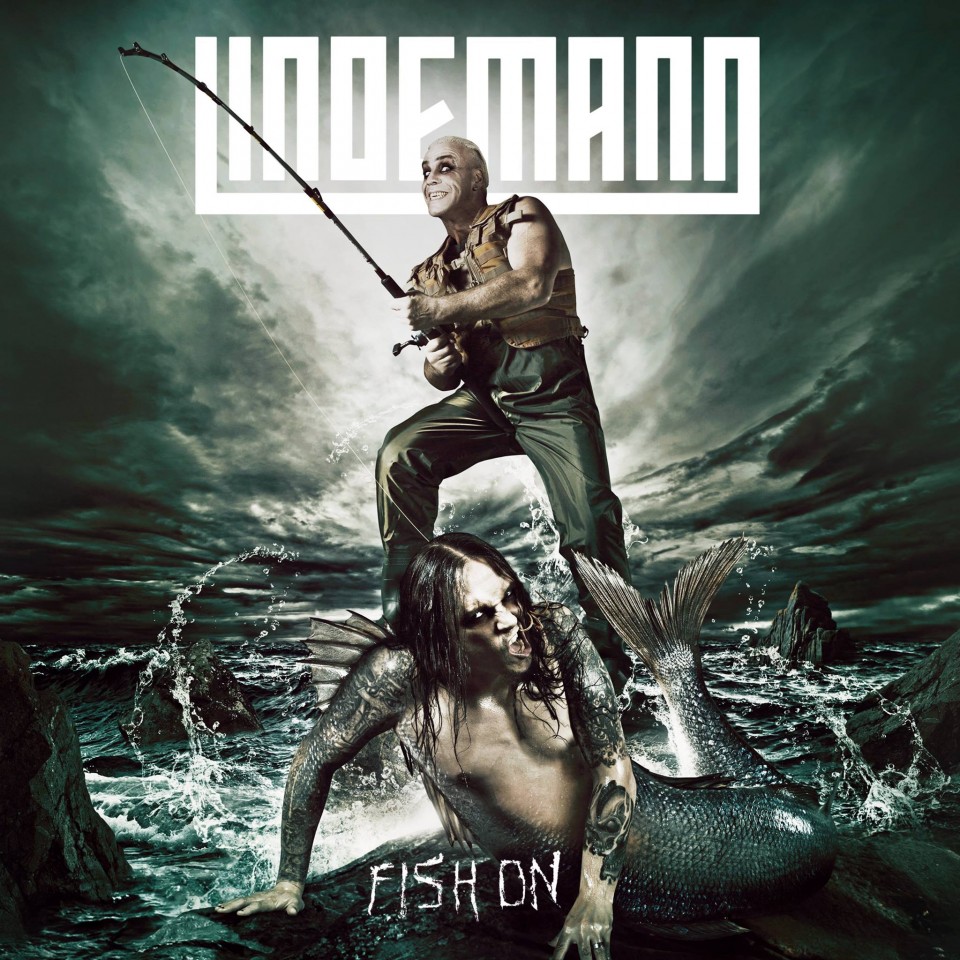
And what about your first promo pic where you looks like a bride with the goat legs? Was it your idea?
Peter Tägtgren: No, it wasn’t my idea, I don’t know was it Till or Heile. I think it was Heile who came up with the goat legs because it looked too normal, even though it looked weird, so he added, even more, weirdness to it.
As for the first promo pic, it was really creepy.
Peter Tägtgren: Yeah, it was like a new marriage. We wanted to show people a new marriage in music creation.
Sometimes you open your performances on "Coming Home" tour with "Rebel Yell" by Billy Idol and leave the stage with "My Way" performed by Frank Sinatra. Why did you choose these songs?
Peter Tägtgren: "Rebel Yell" is a good song to get [hits himself in the chest — Noizr] your adrenalin and your pump starting a little bit. It’s a good rhythm in it, it’s rock’n’roll, it’s easy, and also the crowd gets into it, they warm up as well. And also the concert — we did it my way.
And the same with Frank Sinatra?
Peter Tägtgren: Yeah.
After the concert in Kyiv, you will have two days off before the performance in Romania. Do you plan to stay in Ukraine?
Peter Tägtgren: One day off and it’s all traveling, so there will be no sightseeing, it’s just getting on the bus tonight fast as hell ‘cause we have to drive for 12 hours with the bus.
Pain's official website — painworldwide.com
Order "Coming Home" via Nuclear Blast
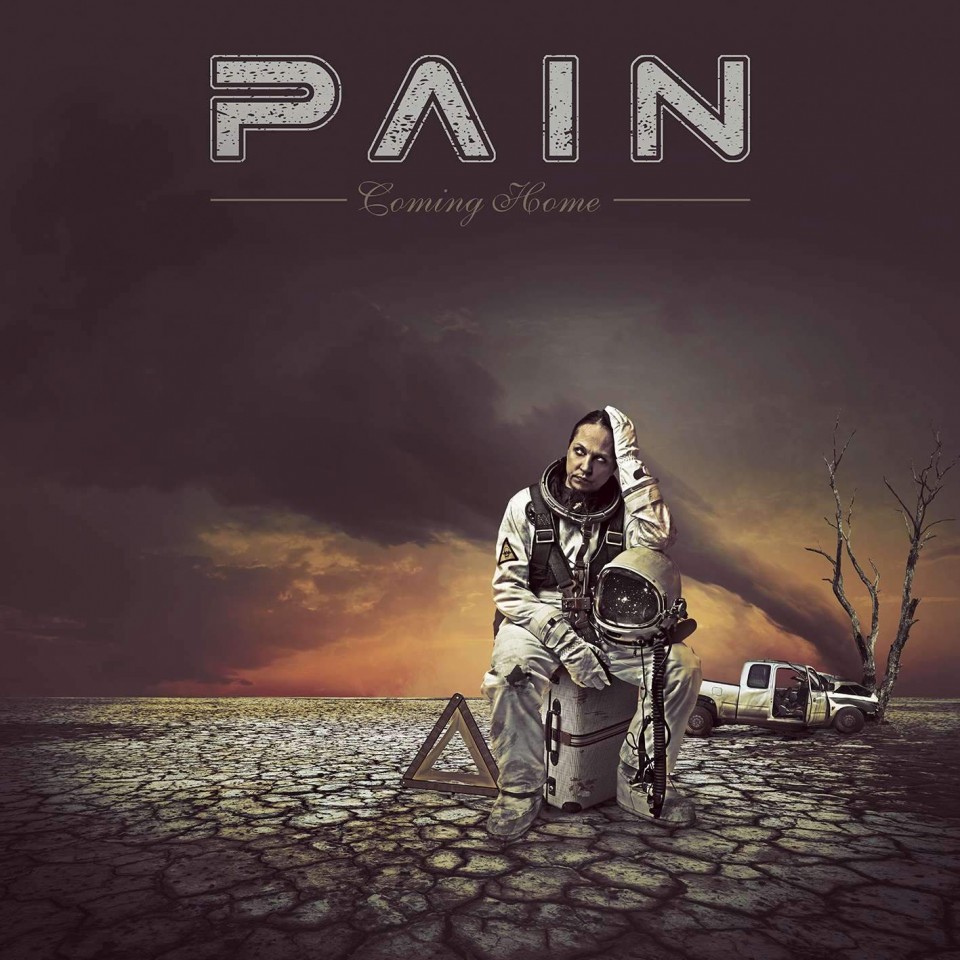
Interviewed by Yuri Somov and Anastezia
Noizr thanks Philipp Adelsberger from Nuclear Blast and Mikael Kapanen for help in organizing the interview
